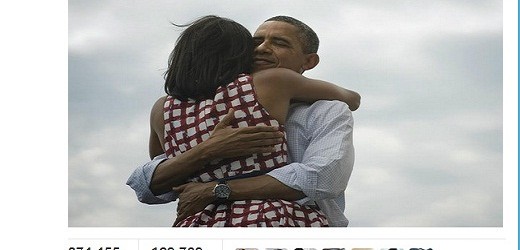The toll of January 1st in America brings a lot more than just New Year’s celebrations. January and early February are chock full of exciting occasions: from Martin Luther King Day to New Orleans’ Mardi Gras festivities to the all-important Super Bowl. And every four years, we throw in the Presidential Inauguration bash for good measure. With Obama’s inauguration on January 21 comes his second term-the time hailed as his chance to leave his legacy and see his 2008 campaign promises through to the end. A mere two weeks into the second term it is clear that Obama has nothing but ambitions and has lost no time in using the new year’s promise of hope and rejuvenation to infuse his own policy initiatives with equal spirits.
A cursory glance at what’s on the presidential docket highlights the major domestic and international policy initiatives that will occupy center stage. At home, Obama’s trying to pass major bills on immigration and gun control reform, rescue the country from the still very threatening fiscal cliff, and see success in the government’s Supreme Court battles on the Defense of Marriage Act and rights to same-sex marriage equality and the contentions of recess appointments. He’s promised to make global climate change issues a priority, he still has his former promises to close Guantanamo Bay in his arsenal, and he’s not quite finished appointing (and having those appointments approved) his members of cabinet. Internationally, he’s got Mali and Northern African Al Qaeda on his agenda along with scaling back efforts in Afghanistan as immediate priorities. If Obama somehow manages to successfully treat even a few of these major issues, no doubt a Superman costume will be on the horizon for this Halloween.
All of these agenda objectives noticeably lack the hot button issues of the Middle East. What happened to our 24-hour news cycle reporting on Syria? On the future of Israel with its upcoming elections and Palestinian representation at the UN? On capacity building in Iraq? Surely these issues haven’t truly gotten lost in the melee. Perhaps they have simply taken a backseat in the wake of sudden international crises and foreign state action that required U.S. response in Mali and Algeria, and of the real possibility of passing unprecedented domestic reforms with the support of a rare national consensus to commemorate Newtown in the form of something larger than stuffed-animal collection drives and candlelight vigils.
From the administration’s perspective these supervening domestic concerns and intervening foreign ones may be very fortunate circumstances. Obama has had no major breakthroughs in negotiations with Israel on its stance towards Palestine or Iran. He has left most of Iraqi development and governmental wrangling to its own internal devices for better or worse, and his actions in Syria providing monetary support and supporting NATO’s decision to send Patriot missiles has not substantially offset the raging civil war, nor did it seem likely that he had plans for escalated engagement in the form of alternative means of support or provision of arms. If American policy in Syria has reached its outer limit, which seems likely, a shift of attention towards areas where the President is more likely to have more measurable successes is not only fortunate but smart. A fresh start coupled with proactivity and results will only empower the administration once the heyday of inauguration has passed. Media attention in Syria now splits equally between the war itself and the tremendous hurdles to access to basic necessities that refugees face. To the extent that both have shifted to concerns of the international community and its agencies the United States’ temporary retreat from its position of baton holder in the race for aid sources merits only nominal rebuke. Success on the home front and in Afghanistan and Africa may even strengthen resolve and support for increased commitments in Syria. New beginnings always bring high hopes and revels of grandeur; it is important that the United States maintain its enthusiasm in the political process long enough to achieve an outcome of progress.
Leslie ESBROOK
Juris Doctor Candidate, Yale Law School 2015
Fulbright Scholar 2010-2012

























































